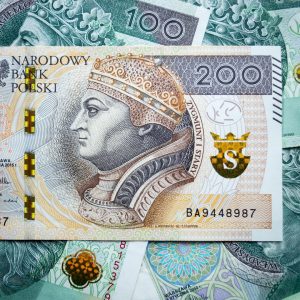Forex brokers are financial intermediaries that enable traders to access the global currency market. These brokers offer various trading platforms, tools, and resources to help traders execute trades and manage their investments. In return for their services, forex brokers charge different types of fees, including commissions. In this article, we will explore how much commission forex brokers charge and what factors affect the amount.
What is a Forex Commission?
A forex commission is a fee that a forex broker charges its clients for facilitating their trades. Forex commissions can be charged in different ways, including a fixed fee per trade or a percentage of the trade’s value. Typically, forex brokers charge commission on trades made through the broker’s trading platform. The commission is usually deducted from the profits or added to the losses of the trade.
How Much Commission Do Forex Brokers Charge?
Forex brokers charge different amounts of commission based on various factors, including the broker’s business model, trading volume, and the type of account. Generally, forex brokers charge a commission of $5 to $10 per standard lot traded. However, the commission can vary widely depending on the broker and the currency pair traded.
For example, some brokers charge a higher commission for exotic currency pairs, which can be more challenging to trade due to their low liquidity and high volatility. Similarly, brokers may charge higher commissions for larger trades, while some brokers offer lower commissions for high-volume traders.
Some brokers offer commission-free trading, where they earn their revenue through the spread instead. The spread is the difference between the bid and ask price of a currency pair, which represents the broker’s profit. In commission-free trading, the broker’s profit is embedded in the spread, which can be wider than the spread in commission-based trading.
Factors Affecting Forex Commission
Several factors can affect the amount of commission charged by forex brokers. These include:
1. Broker’s Business Model: Forex brokers can have different business models, including market makers, straight-through processing (STP), and electronic communication network (ECN). Market makers earn their revenue through the spread and may not charge any commission. STP brokers may charge a commission but offer lower spreads, while ECN brokers charge a commission and offer direct access to the interbank market.
2. Trading Volume: Forex brokers may offer tiered commission structures based on the trader’s trading volume. For example, a broker may charge a lower commission for traders who trade more than a certain threshold.
3. Account Type: Forex brokers may offer different types of accounts, including standard, mini, and micro accounts. Each account type may have different commission rates, with the standard account having the highest commission and the micro account having the lowest commission.
4. Currency Pair: Forex brokers may charge a different commission for different currency pairs, depending on the pair’s liquidity and volatility.
5. Trading Platform: Some forex brokers may offer different commission rates depending on the trading platform used. For example, a broker may charge a lower commission for trades executed through their proprietary trading platform compared to trades executed through a third-party platform.
Conclusion
Forex brokers charge commissions to facilitate their clients’ trades in the global currency market. The amount of commission charged varies depending on several factors, including the broker’s business model, trading volume, account type, currency pair, and trading platform. Forex traders should evaluate the commission structure of different brokers before choosing a broker to ensure that they get the best value for their trading activity.






